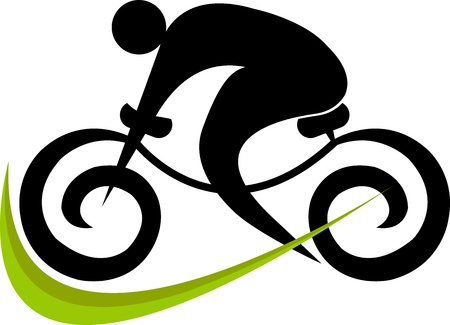Dyspraxia and Cycling
Many dyspraxics don’t like sport. Childhood memories of PE lessons coupled with motor control challenges create strong negative associations. Yet physical activity is essential for mental well-being.
I’ve shared my love of cycling before on the blog and I have blogged about the restorative power of yoga. I like being active but it has not always been this way.
I can’t remember when I learned to cycle or how long it took. If it was anything like my learning to drive it took some time. I can remember some early spectacular crashes mostly due to lapses of concentration.
As a child, my bike was my freedom. I could go where I wanted when I wanted. I could explore quiet country roads or pretend I was Evel Knievel jumping over ramps. My hand-eye coordination is such that I was never a big fan of kicking a football about but I could have fun with friends riding through forests.
As an adult, my bike is still an escape. I can get out on some amazing roads and mull things over. Cycling can be mentally restorative. I can ride along quiet country lanes listening to audio books. The geography helps anchor concepts (a great memory technique) but the inability to take notes can hinder recollection of the finer points.
I am not a great cyclist. I am a member of a local social cycle club and I’ll often be reminded to “hold the line”. This is not born of a pointless desire to look good. Taking a predictable route is essential for safe riding in close formation. I am occasionally guilty of the biggest sin in group cycling- half-wheeling. This is where my front wheel overlaps with the rear wheel of the cycling in front. Not to be confused with the half wheeling where cyclists are in pairs and one always tries to be 1/2 a wheel in front of their pair. Half wheeling is dangerous because if the cyclist in front moves to avoid an obstacle the wheels can clip and a crash ensues.I struggle judging distance and my mental processing speed is slower than average which impacts on my reaction times.
I struggle judging distance and my mental processing speed is slower than average which impacts on my reaction times. My fine motor control means my pedalling is not as smooth as it could be which also impacts the smoothness of my ride. I can take a corner reasonably well but two back to back corners is beyond me – I never seem able to get a good line so always end up slamming on the breaks.
Slow reaction times, lack of coordination and unpredictable movements might sound like a dangerous combination. It’s not. I have only had two incidents in the last 20+ years. One of those was a car failing to give way on a roundabout and no serious damage was done to me. It did take my bike off the road though. The other was a simple front wheel slip on some wet leaves. Apart from torn trousers and gloves, this left no lasting marks. Both incidents dented my confidence at the time. They made me cycle more cautiously. But I got back on my bike and have kept cycling.
I have a terrible sense of direction and I am not very good at reading maps. Before smart phones I tended to stick to places I knew on the bike. With google maps in my pocket I could venture further with a carefull eye on battery life. Now I have a garmin with maps and satnav like direcitons I can go wherever I want, limited only by time. I’ve recaptured that childhood freedom to explore.
As a result of my cycling, I am fitter now than I was 10 years ago. I might even be fitter than I have ever been. Physical activity helps to lift the mental fog that sometimes decends.
I find cycling is also great for social connection. Remembering names is a challenge for me. I also struggle to remember all those little facts that help social interaction – like who’s about to head off on holiday and all that sort of stuff. This can make small talk a nightmare for me. Technology helps here – with Strava I can see who I was out cycling with and slowly start to learn names.

